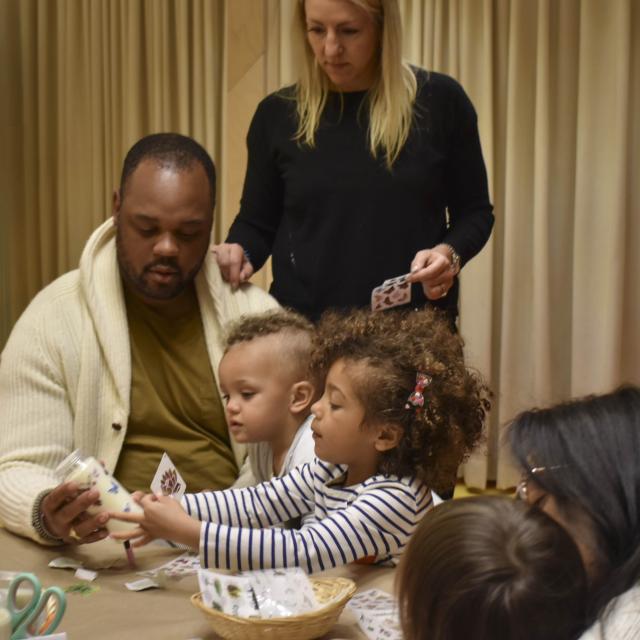Our Black History

Today and every day, writes Father Phil Jackson, Trinity honors the generations of faithful Black lives whose strength shows us the way.
Dear Trinity Family,
In celebration of Black History Month, we’ve spent the past four weeks highlighting the role of Black people in the history of Trinity Church. We look back to learn from what the Bible calls the “great cloud of witnesses” who came before us, whose hope and courage in the face of impossible odds help us understand where we need to go, what we need to do.
We start with a hard truth: The first Trinity Church was built in 1698 using the labor of enslaved Africans. Their names are lost to history, but we will never forget they are the reason we had a church to worship in.
We remember the hundreds of students who attended schools Trinity established for free and enslaved Africans in the 18th and 19th centuries — a night school founded by Trinity vestry member Elias Neau in 1704, the African Free School for children built on Trinity land in 1787, and the school started around 1819 by the Rev. Peter Williams Jr., New York’s first Black Episcopal priest. Despite the restrictive laws and social norms of the time, these students learned to read and write, and they learned about a God of hope.
We recall the 20th century, a time our parish opened up to the world. We remember how Anglicans from New York’s immigrant Caribbean communities began filling our pews in the 1960s, drawn by the liturgical practices they remembered from their homes. Their faith, service, and love revitalized our church, and they paved the way for the diverse and vibrant community we have today.
We also honor Trinity’s deep, lasting friendship with South African Archbishop Desmond Tutu, whose decades of faithful resistance and international advocacy helped end the oppressive regime of apartheid in his country. In the 1980s, at a time when the archbishop was censured by the state-operated press, Trinity helped establish a computer network that brought his message of nonviolence and equality to pulpits across South Africa. Through his many visits to our parish over the years, Archbishop Tutu became a beacon of Christ’s love to our congregation.
For me, one of the most powerful lessons from this month has been reflecting on how Trinity has renewed its centuries-old commitment to Black students in this century. This shows up in our support for the Voorhees Fellows, a program that offers internships to students at Voorhees University, an Episcopal HBCU (Historically Black College and University) in South Carolina. It shows up in our Commons every day at Trinity Youth Afterschool, where 200 teenagers from different races and socioeconomic backgrounds come to learn — and build a new community — together.
The Trinity Church we have today is the legacy of generations of individual, faithful lives. As we look back at the strength and sacrifice of those who came before, the paths they found when all ways were closed to them, we are reminded that there are Christian antidotes to the fear that troubles us today.
This is a difficult time. Anxiety and anger dominate the news cycle and our conversations; they dampen our vision for the future. But we cannot let fear freeze us and keep us from doing the work we’re called to do, from becoming the people we’re called to be.
The antidote to fear is courage. The antidote to anxiety is hope. That’s not some weak, pie-in-the-sky hope. It’s muscular, real hope, grounded in the death-defying love of God revealed to us in the person of Jesus Christ.
During the coming season of Lent, and over the next four years, I’m asking you to be people of hope and courage. Look in the mirror and tell yourself, “Today, I will be courageous. Today, fear will not rule me.” Start with that.
From the earliest days of our church, Trinity’s Black community has demonstrated what it means to be people of courage and conviction. More than anything, they’ve taught us that our circumstances do not change Jesus’s message. History — and our future — belong to God.
Blessings,
Phil






